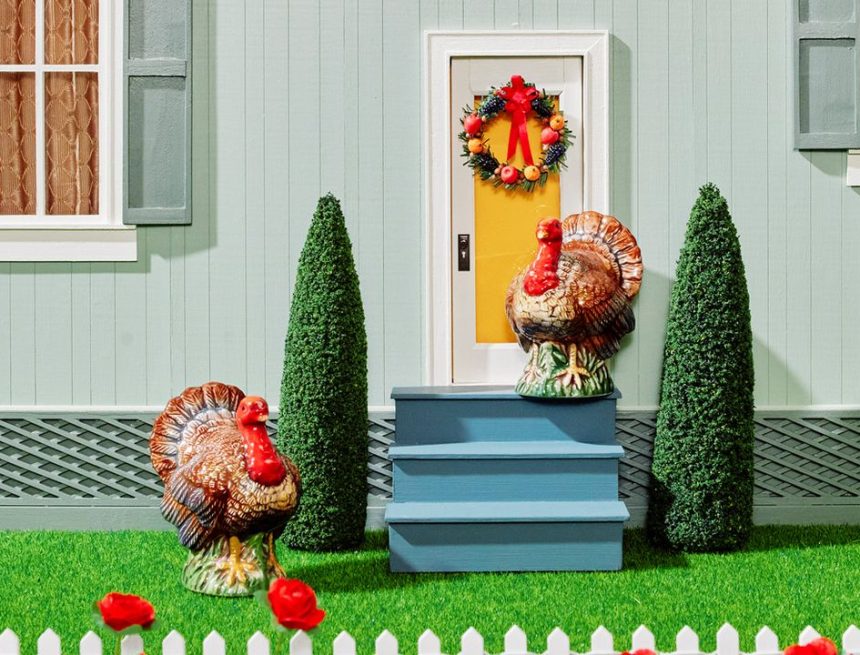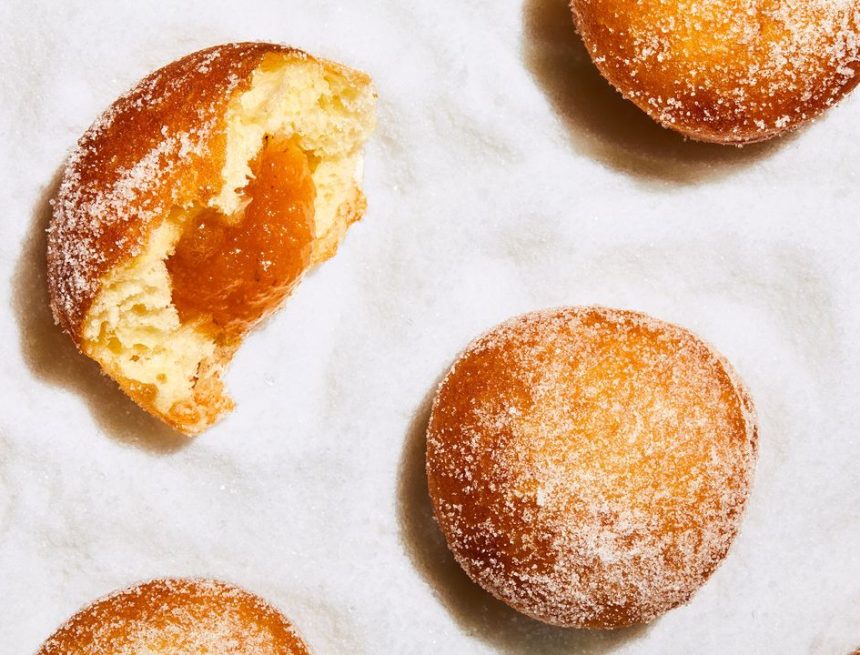Most pitmasters I spoke with use briskets from Creekstone Farms, based in Kansas, where the Black Angus cows are slaughtered to halal standards. Creekstone rose to fame as the go-to source for Franklin BBQ, which arguably launched the modern craft Texas BBQ movement. Kafi BBQ, an Iraqi-influenced BBQ joint from Salahodeen Abdul-Kafi in Irving, Texas, sources beef locally from Wagyu-X, just west of Dallas. Wagyu-X, cofounded by scions of the first Texan cattle ranchers, has their own halal processing facility. For smaller producers, it’s easier to create both higher-quality products and halal-compliant processes, which help open up lucrative export opportunities to foreign markets in the Middle East and across Asia.
Abou Sow runs the halal Prince Abou’s Butchery in Queens, New York. “Most of our customers don’t even have halal diets,” he says. Sow sources his meat from farms he has personal relationships with in the tristate area; his customers, including local residents and restaurants, appreciate how intention translates into superior taste.
There’s no single dominant ethnicity or racial group within American Islam. Black or African American, Middle Eastern/North African and South Asian ethnicities each represent about 20%–30% of Muslims; the rest are a mix of Southeast/East Asian, Hispanic, and White ethnicities. What that means is the flavors on your BBQ tray at a halal joint may delight you in unexpected ways. Muslim American pitmasters code-switch flavors and identities effortlessly in their approach, all evolving a uniquely American BBQ style.
At Sabar BBQ, Shafi marries Pakistani flavors with Texas-style BBQ. His seekh kebab sausage is where his genius snaps into glory. He serves his BBQ alongside daal over rice, fruit chaat, kachumber, raita, and naan. Abdul-Kafi shows his Iraqi heritage in pomegranate-glazed burnt ends and Iraqi sausages; he also sells Texas Twinkies, jalapeños stuffed with cream cheese and wrapped in house-made beef bacon. Fikscue in Oakland, by Fik and Reka Saleh, blew up the food world with their combination of Indonesian flavors and Central Texas–style meats. “Our distinction is putting those smoked meats into Indonesian dishes,” Fik Saleh says, like their beef brisket rendang.
Far be it from me, though, to orientalize my own culture—just because something is halal doesn’t mean it’s exotic. “Our barbecue is halal because we’re Muslim, but we serve the American food we grew up with, like our smoked meatloaf,” says CJ Henley, who grew up in Louisiana. His wife Sabrina grew up in Philadelphia, so Yearby’s serves house-made water ices too. Mohsin Rehman, co-owner at Hal & Al’s BBQ in Arlington, Virginia, is from Baltimore. While his rubs are spiked with both Old Bay and Pakistani flavors, his menu is inspired more by road trips he’s taken. It includes beef ribs he learned to trim from Shujaa Muhammad, a famed Black Muslim pitmaster from Atlanta; and the Fatwahffle, a Belgian waffle topped with smoked meats and maple syrup.
Halal BBQ spots showcase serious craft. No one gets hour-long lines without damn good BBQ, no matter how inventive the flavors. Daniel Vaughn is the BBQ Editor at Texas Monthly, a role equivalent to the pope in the BBQ world. “It makes sense that a halal barbecue menu would be easier to produce [in Texas] than in the rest of the pork-obsessed South,” he explains. A big challenge is the sausage; halal pitmasters use lamb casings, smaller and easier to break than pork ones. “The thing that Yearby’s and Sabar have both done incredibly well is produce remarkably good beef sausages in lamb casings that have Texas barbecue flavor and smoke and that signature snap.”


